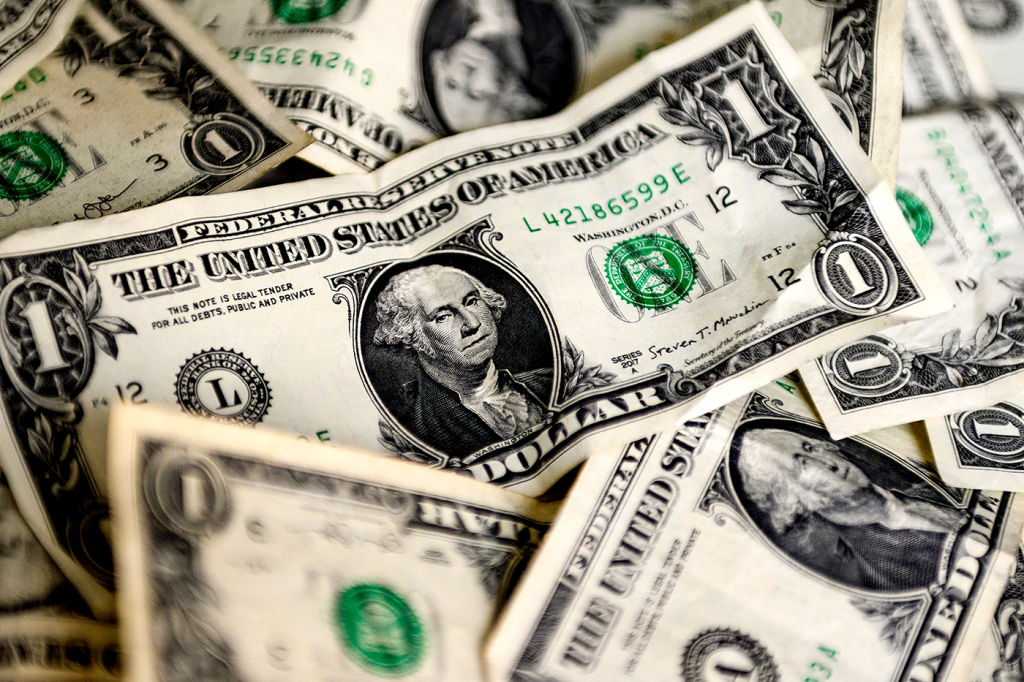The dollar eased slightly against a basket of currencies on Monday while dropping sharply versus the yen as investors focused on U.S. President Joe Biden’s decision to end his re-election campaign and the next moves from the Federal Reserve and the Bank of Japan.
Analysts said the Japanese currency could be at a turning point after falling since the beginning of 2024 as the Fed is close to cutting rates and the BoJ is widely expected to tighten its monetary policy soon.
The Federal Reserve Open Market Committee will meet on July 30, a day before the Bank of Japan.
Money markets fully price in a 25 bps Fed rate cut by September.
“The yen has become more volatile ahead of the latest policy meetings from the Fed and BoJ,” said Lee Hardman, senior currency analyst at MUFG, after flagging that the Japanese currency has been supported by “more compelling evidence of slowing U.S. inflation.”
“Furthermore, former President (Donald) Trump has expressed concern over the high level of the U.S. dollar versus the yen,” he added.
The greenback dropped 0.6% versus the Japanese currency at 156.58.
The dollar index – a measure of the value of the U.S. dollar relative to a basket of foreign currencies – fell 0.1% at 104.30.
Biden announced he was exiting the race on Sunday, and endorsed Vice President Kamala Harris to replace him as the Democratic candidate in the November election. Harris quickly received the backing of many within the party, but several high profile names stayed quiet, including former House of Representatives Speaker Nancy Pelosi.
Former President Trump, the Republican nominee, sits well ahead in betting markets following Biden’s disastrous debate performance last month and questions about his age and health.
Commonwealth Bank of Australia strategist Joseph Capurso warned it was too early to read much into the dollar’s reaction.
“The bottom line is what the polls show this week,” Capurso said, explaining that a decline in odds for a Trump win should see the dollar weaken, and vice versa.
“Harris might be a stronger candidate, but is it enough to turn the polls?”
Unicredit flags that the odds associated with various outcomes in the U.S. election have changed little since Joe Biden’s announcement.
The euro was up 0.05% at $1.088.
Analysts flagged that the ECB offered no concerted push back at last week’s policy meeting on the heavy pricing for a cut in September, which remains a strong base case.
The dollar strengthened 0.1% to 7.2943 yuan in offshore trading after the People’s Bank of China unexpectedly cut the seven-day reverse repo rate to 1.7% from 1.8%, saying the move would improve open market operations and support the real economy. That was followed minutes later by surprise reductions to the one- and five-year loan prime rates.
The Australian dollar sagged 0.25% to $0.6651, giving up earlier gains of about the same margin following news of Biden’s withdrawal.
The New Zealand dollar fell 0.22% to $0.5996.
“Sentiment is fragile and AUD/USD has clearly taken notice … with China’s rate cuts adding fuel to the bearish fire,” said Matt Simpson, a market analyst at City Index.
“Fed policy and yield differentials are no longer the only game on town, and we’re just getting warmed up for the U.S. election.”



